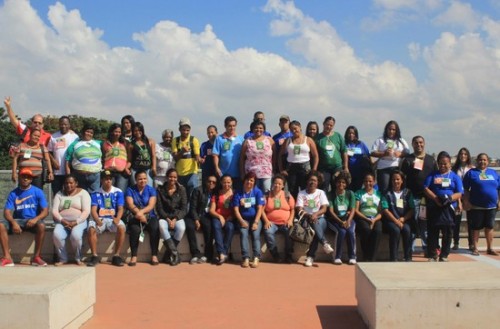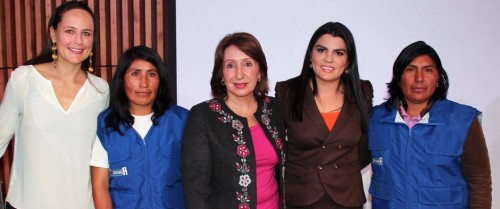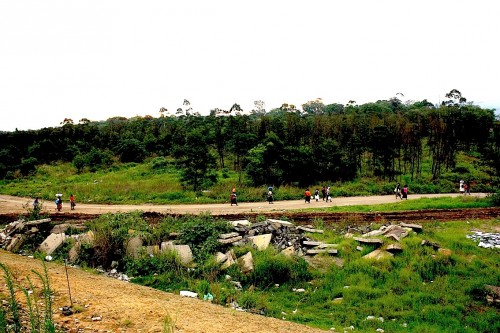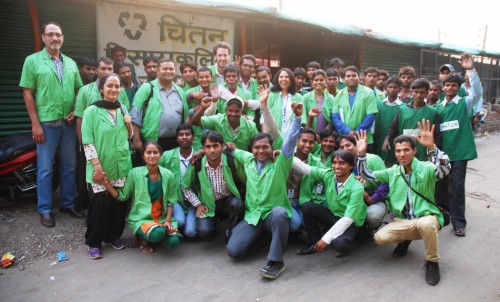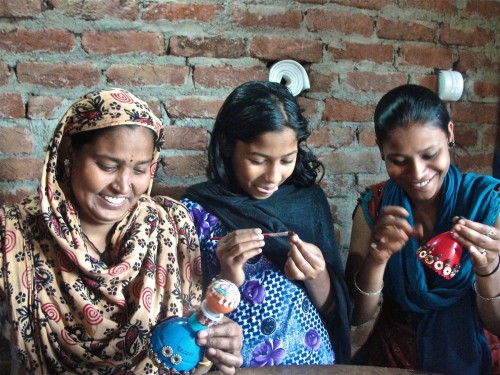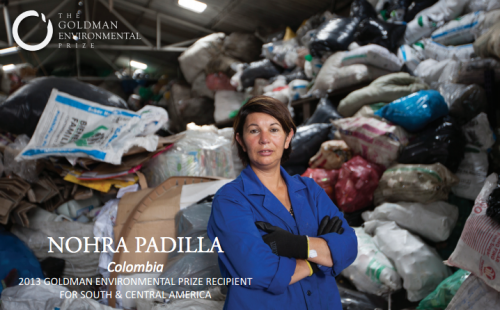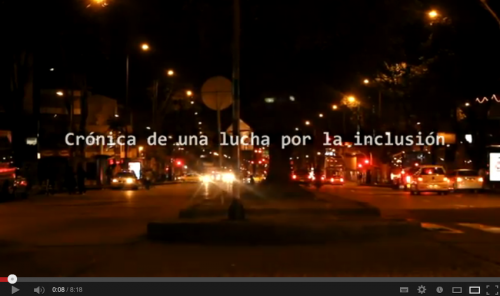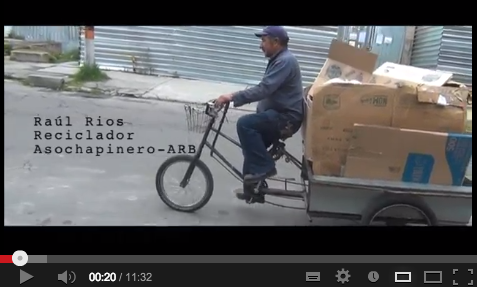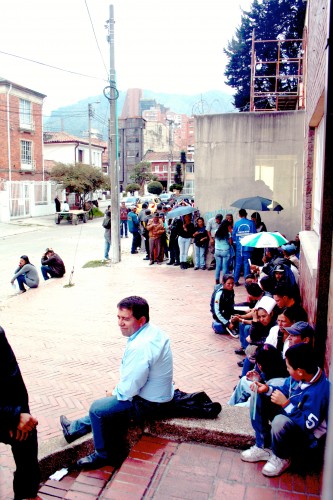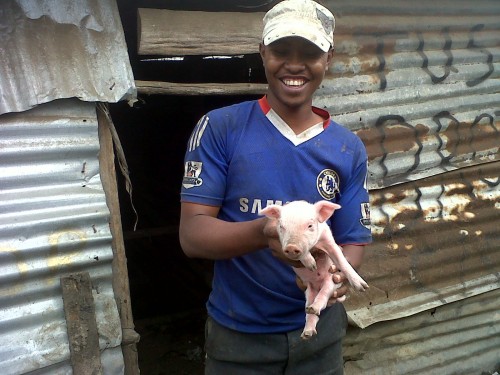
INTERNATIONAL ALLIANCE OF
WASTE PICKERS
The International Alliance of Waste Pickers is a union of waste picker organizations representing more than 460,000 workers across 34 countries
Supported by

Category: Inclusive models
The Movement of Brazilian Waste Pickers (MNCR) showed once more the result of a national effort in the struggle for recognition with the official partipation of waste pickers in recycling service during the World Cup. Close to 840 waste pickers organized in cooperatives and networks were part of the recycling effort across 12 World Cup stadiums, as well as at official World Cup events.
Through this latest 12-page issue of the newsletter, SWaCH shares the journey it has been on since it was founded five years ago – the excitement, the anxieties, successes and new ideas that have emerged for making Pune a better city for all in the years to come.
Ministerio del Ambiente (Ecuador) | Region Latin America | Mar 01, 2014
Organized waste pickers are the subject of an agreement in Ecuador between the Ministry of Economic and Social Inclusion, the Ministry of the Environment, the Institute of Popular Economy and the National Network of Waste Pickers of Ecuador (Renarec), with the support of the Avina Foundation
Melanie Samson | Region Africa | Jul 10, 2013
On May 15 and 16, 2013 over 400 people attended the Joburg Waste Summit, hosted by the Johannesburg Council and its waste management company Pikitup. The Council and Pikitup urgently need to find ways to minimize waste going to landfill, and the Summit was called to explore how to do this. WIEGO and SAWPA argued that landfill reclaimers need to be included in all discussions and new recycling initiatives.
In April, officials from the South African Department of the Environment were in Brazil and Colombia to learn about inclusive solid waste management. They visited waste pickers’ movements and cooperatives and spoke with NGOs and city officials. “We are particularly encouraged by the participatory aspects. This is something that resonates with South Africans,” Cobbinah said.
In the beginning of April of this year, officials from the South African Department of the Environment (chemical and waste management branches) were in Brazil and Colombia to learn about inclusive solid waste management.
Chintan celebrated Earth Day on April 22nd, in partnership with the Indian Railways at the New Delhi Railway Station. The Chintan team along with waste pickers with Safai Sena encouraged commuters to sign pledges to not litter the station and to crush plastic bottles before discarding them.
In March of this year, Kabad Se Jugad, a women’s cooperative that makes arts and crafts out of recyclable materials launched in the Seemapuri neighborhood of New Delhi. Before forming the cooperative, members survived by collecting waste from the surrounding neighborhoods. In partnership with New York-based artist, Rolando Politi, also known as Recycle and Pray, these waste pickers are transforming these materials into objects and art, “relying on inspiration and creativity (in Hindi: jugad) to guide our production process” and “bringing our talent of improvising from waste to the wider world.”
Here is a video of the Goldman Prize acceptance speech of Nohra Padilla, informal recycler and leader of the Colombian waste pickers’ movement. As part of the Goldman Prize, Padilla and other supporters of inclusive waste management (including the director of the Bogotá solid waste management department) were taken on a tour of San Francisco’s Zero Waste program. See the gallery of photos in this post. Also, Nohra Padilla is also scheduled to meet with President Obama. More on that soon!
Congratulations, Nohra Padilla, informal recycler and leader with the Association of Recyclers of Bogotá and the National Association of Recyclers in Colombia, for winning today the Goldman Environmental Prize for South and Central America. This prize has been called the environmental “Nobel” or “Oscar”. It comes with a $150,000 cash award.
“Chronicle of a Fight for Inclusion: The December 2012 garbage crisis of Bogotá” (now with English subtitles) shows organized waste pickers promptly taking actions to reduce the impact of the garbage crisis in Bogota and giving an account of the series of unfortunate events and bad decisions that led to it, and of their struggles and victories throughout time to secure their rights and livelihoods. In doing so, they demonstrate their capacity to provide efficient and quality services to the city’s waste management system.
This video discusses Auto 275, a Bogotá law meant to protect waste pickers’ rights as public service providers and to guarantee payment. It led to the court order that resulted in the organized waste pickers of Bogotá receiving priority as service providers and receiving payment for the first time. Auto 275 is explained via interviews conducted by a Bogotá waste picker with government authorities. The version with English subtitles is coming soon!
After over 20 years of fighting for recognition and inclusion in the city’s waste management system, the organized waste pickers of Bogotá finally saw their dreams come true when the municipal government issued them in March their first payment for the collection and transportation of recyclable materials. It was the first time they were paid as public service providers to the city.
Today, March 12, 2013, 250 waste pickers, mostly members of the ARB, received from the Mayor, the “PIN” or banking system, through which the Mayor is going to grant payment for the tons transported since December 2012.
As part of the organizational efforts from the Kenyan Alliance of Waste Pickers, a group from Dandora, Kenya, has started a project to raise pigs.
Waste pickers in Kenya are fighting to be heard. It has been a slow process of building solid organisation but it is showing results.
In the towns of Nakuru, Mombasa, Kisumu and Nairobi many people view pickers as trouble makers, especially as gangs sometimes operate from dumps. In fact the waste pickers are earning an honest living by collecting, sorting and selling metals such as aluminium, copper and iron as well as plastic bottles and containers, cloth, bones and organic waste.
This is the English translation of the petition for an inclusive recycling in Bogotá, Colombia.
Gustavo Petro, Mayor of Bogotá: I want your guarantee of real inclusion of all waste pickers in Bogotá.
I want him to ensure the real inclusion of all waste pickers in Bogotá.”On December 18th 2012, the department of the district government which is responsible for waste management in Bogotá, UAESP, plans to deliver new contracts to fictitious waste picker organizations. It is demonstrating once again a lack of compliance with its agreements, and jeopardizing the livelihoods of thousands of waste pickers and their families.” Read the full petition in English.
by Leslie Vryenhoek From April 27-29, waste pickers from Asia, Africa, Latin America and Europe participated in the First Global Strategic Workshop in Pune, India . This workshop w...
India – March 1, 2012 SAMMAN, SVD Vidya Bhavan E-6, Arera Colony, Bhopal Bhopal based NGO the centre for ‘Social Animation of Marginalized, Migrants And Nomads’ called S...
